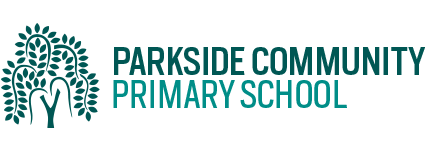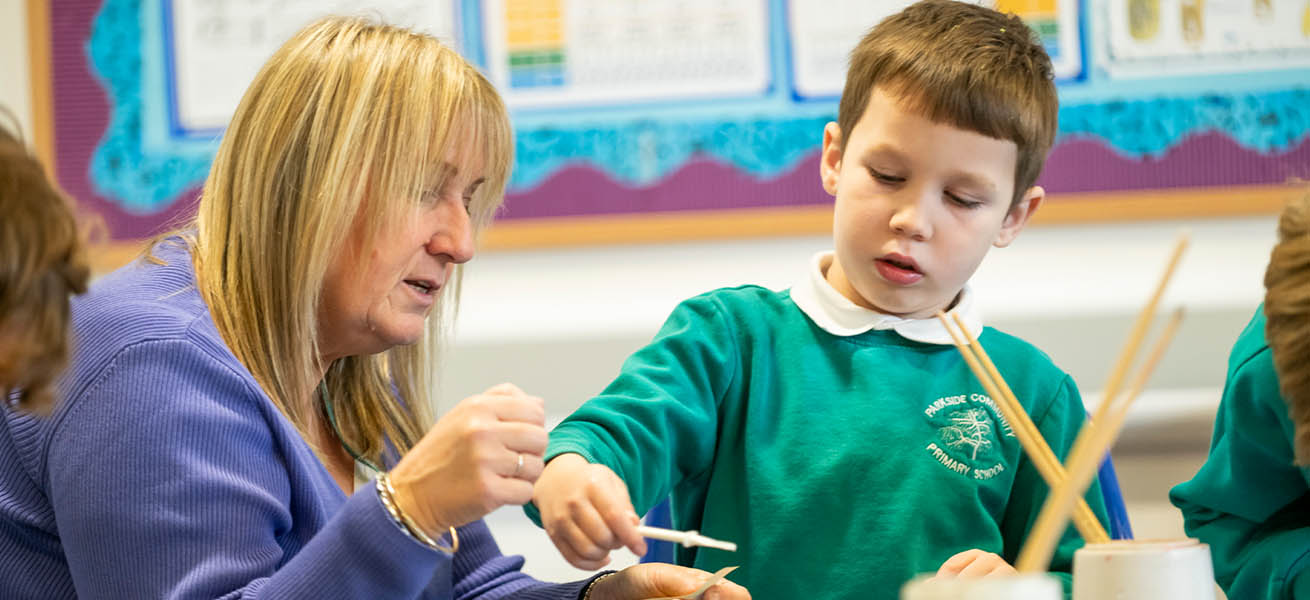Catch Up Premium
Parkside COVID-19 Catch-up Premium Spending summary 2020-2021
Funding allocation
Schools’ allocations are calculated on a per pupil basis, providing each mainstream school with a total of £80 for each pupil in reception – year 6.
The catch-up premium has been designed to mitigate the effects of the unique disruption caused by coronavirus (COVID-19)
Use of funds
Schools can use this funding for specific activities to support their pupils to catch up for lost teaching over the previous months, in line with the guidance on curriculum expectations for the next academic year. Schools have the flexibility to spend their funding in the best way for their cohort and circumstances.
Accountability and monitoring
As with all government funding, school leaders must be able to account for how this money is being used to achieve our central goal of schools getting back on track and teaching a normal curriculum as quickly as possible.
Governors will scrutinise schools’ approaches to catch-up including funding. This should include consideration of whether schools are spending this funding in line with their catch-up priorities, and ensuring appropriate transparency for parents. (DfE guidance – Coronavirus (COVID-19) catch-up premium – updated 24/08/2020)
Summary Information
| Total number of pupils: | 74 KS1+KS2 | Amount of catch-up premium received per pupil: | £80 |
| Total catch-up premium budget: | £5900 in October 2020 | £22,080 | |
| £6980 in March 2021 | |||
| £9200 in June 2021 | |||
| Spend so far: | Balance: £13194 | To be spent on: | Should leave enough for Spring term tuition (£5994) |
| £205.50 Back on track resources Nov 2020 | Renewing phonics £1200 | ||
| £1125 Phonics subscription Nov 2020 | Autumn 2021 tutoring costs £6000 approx. | ||
| £5707.50 NTP Summer 2021 fees |
Strategy Statement
To raise the attainment of all pupils to close the gap created by COVID-19 school closures.
To reduce the attainment gap between disadvantaged pupils and their peers.
The mental health needs of pupils that have arisen as a result of the pandemic are met and supported by the school.
Barriers to Future Attainment
Children have been away from school for a significant period of time which has in some cases resulted in poor mental health, wellbeing and issues around social and emotional behaviours.
Some children’s resilience and self-confidence is lower than pre COVID which could result in weak progress and attainment.
Gaps in basic skills taught remotely in reading, writing and maths leaving some children behind their normal attainment level.
| Barrier | Action | Impact |
|---|---|---|
| Pupils who have fallen behind during lockdown due to lack of home support or disengagement. | Use of catch-up funding to pay for tuition for pupils, through the National Tutoring Programme, who have moved backwards | Pupils who receive provision make accelerated progress |
| during lockdown. List of pupils who will be targeted across Reception to year 6 for this support | ||
| Intervention to take place as part of first quality teaching and is planned for within the lessons | ||
| Experienced teacher to support small group and 1:1 catch-up in Years 4 and 5. | ||
| Pupils have gaps in learning due to lockdown. | Pay the top up fee to access the subsidised national tutoring programme for disadvantaged pupils and others who are identified as needing “catch up” in their learning. | Pupils make accelerated progress in their learning at each assessment point. |
| Fund additional support staff to develop the outcomes of children who have been identified as needing “catch up” in their learning. | Balance in lessons of catch-up and teaching current year group objectives. | |
| Pupils working below ARE | To ensure all teachers have a clear understanding of the curriculum gaps that need covering in the current year of teaching from previous years objectives | Teachers are fully equipped to ensure QFT in every classroom. |
| Gaps Analysis | All teachers have a clear understanding of the curriculum gaps they need to teach. | |
| English and Maths Lead given time to analyse curriculums | Teachers will have increased levels of confidence in meeting the needs of their children. | |
| Maths and English lead given time to complete 1:1 Curriculum CPD with identified teachers. | Teachers will improve their coaching and mentoring skills. | |
| Due to pupils being indoors and less active during Covid isolation their health and well-being have decreased making it even more essential that they are engaging in high levels of physical activity and establishing good active behaviours for later life. | PE lessons to be prioritised using outdoor equipment as much as possible. | Fitness levels of pupils return to pre-Covid standards. |
| CPD to be delivered on outdoor learning to staff. | Pupils are engaged in an outdoor lifestyle which encourages a love of nature and builds confidence and independence. | |
| EYFS and Ks1 pupils have returned to school with a significant communication barrier. | Specific language support for children in reception through Nuffield Early Language Intervention. | Pupils to make accelerated progress with their language to meet GLD by the end of the year. |
| NELI is a 20-week intervention designed to improve the oral language skills of reception-aged pupils, involving individual and small group scripted language teaching sessions delivered by trained school staff. | Pupils will close the language gap. | |
| Pupils will have improved understanding of reasons, means and opportunities to communicate. | ||
| Pupils will have increased levels of confidence and self-esteem. | ||
| Nursery -> Reception -> year 1 pupils missed most of the EYFS curriculum and face specific difficulties. | EYFS and Year 1 teachers collaborate to ensure Year 1 pupils have a balanced curriculum following the EYFS ethos for the first half term to help pupils transition into year 1 after lost learning. | For teachers to have the resources available to continue a play based approach to learning. |
| Pupils will have reduced levels of anxiety around the key stage transition. | ||
| Pupils will feel comforted by the familiar approach to learning. | ||
| Pupils and parents anxiety on returning to school. High proportion of parents and carers reporting to have anxiety issues. | Mental health and anxiety support through the SENCo and Parental Engagement Officer | Additional support available to break down anxiety and ensure pupil attendance. |
| Narrowing the curriculum. | All Teachers will have additional time and support to monitor their specific subject. | Improved teacher knowledge of their subject. |
| Teachers will have the opportunity to conduct learning walks, book reviews and progress analysis. | Teachers to have a deeper understanding of the expectations of progressive skills. | |
| Teachers will have the opportunity to complete subject action plans alongside CPD opportunities. | Teachers experience the restorative curriculum | |
| Deeper understanding of curriculum progression. | ||
| KS1 pupils lost learning (Phonics) | Purchase Read Inc Virtual classroom so that children still have access to phonics lessons during bubble closures and lockdown, it also includes staff cpd. | Pupils continue to have access to phonics lessons during bubble closures and lockdown. |
| Staff Training. |


